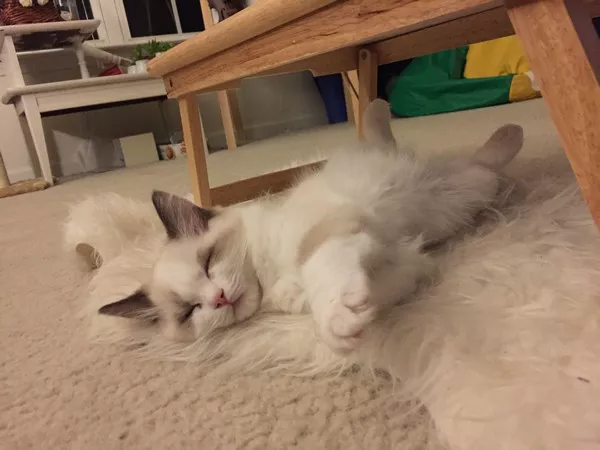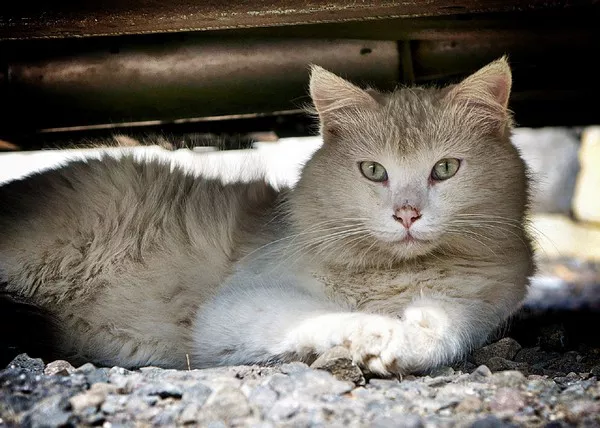Bringing a Ragdoll kitten into your home is an exciting and rewarding experience. These adorable furballs are known for their affectionate nature, silky fur, and striking blue eyes. However, like all young cats, Ragdoll kittens can be energetic and playful, often leaving owners wondering when they will calm down. In this article, we explore the developmental stages of Ragdoll kittens and provide training tips to help you manage their energy levels effectively.
The Developmental Stages of Ragdoll Kittens
Early Kittenhood (0-4 months):
During the first few months of life, Ragdoll kittens are full of boundless energy and curiosity. They spend their days exploring their surroundings, playing with toys, and engaging in social interactions with littermates and humans. At this stage, it’s normal for Ragdoll kittens to be highly active and inquisitive as they learn about the world around them.
Adolescence (4-12 months):
As Ragdoll kittens enter adolescence, their energy levels may peak, leading to increased playfulness and mischief. They may exhibit behaviors such as zooming around the house, climbing on furniture, and engaging in rough-and-tumble play with other pets or household members. While Ragdoll kittens may start to show glimpses of their adult temperament during this stage, they are still in the process of maturing both physically and behaviorally.
Young Adulthood (1-2 years):
By the age of 1-2 years, Ragdoll kittens typically transition into young adulthood. During this stage, they begin to settle into their adult personalities and behaviors, although they may still retain some of their kitten-like energy and playfulness. While Ragdoll cats are known for their laid-back demeanor, it’s essential to understand that individual differences in temperament and energy levels can vary.
Training Tips for Managing Your Ragdoll Kitten’s Energy
Provide Enrichment Opportunities:
Keep your Ragdoll kitten mentally and physically stimulated by providing plenty of enrichment opportunities. Interactive toys, puzzle feeders, and scratching posts can help channel their energy into positive outlets while preventing boredom and destructive behaviors.
Establish a Routine:
Establishing a consistent daily routine can help your Ragdoll kitten feel secure and reduce anxiety. Set regular mealtimes, play sessions, and grooming sessions to create a sense of structure and predictability in their environment. Consistency is key to promoting a sense of stability and calmness in your kitten’s life.
Encourage Play and Exercise:
Engage your Ragdoll kitten in regular play and exercise sessions to help burn off excess energy and keep them physically fit. Interactive play sessions using wand toys, feather teasers, and laser pointers can mimic hunting behavior and provide mental stimulation. Aim for at least 15-20 minutes of playtime each day to help your kitten stay active and entertained.
Provide Vertical Space:
Ragdoll kittens are known for their love of climbing and perching, so providing vertical space in the form of cat trees, shelves, and window perches can satisfy their natural instincts and encourage physical activity. Vertical space also allows your kitten to observe their surroundings from a safe vantage point, reducing stress and promoting relaxation.
Positive Reinforcement Training:
Use positive reinforcement training techniques to encourage desired behaviors and discourage unwanted behaviors in your Ragdoll kitten. Reward good behavior, such as using the litter box, scratching on appropriate surfaces, and coming when called, with treats, praise, and affection. Consistency, patience, and positive reinforcement are essential for successful training.
Socialization and Exposure:
Expose your Ragdoll kitten to a variety of people, animals, and environments from a young age to promote socialization and confidence. Gradually introduce them to new experiences, such as car rides, vet visits, and household appliances, in a positive and controlled manner. Early socialization helps prevent fearfulness and anxiety in adulthood.
Conclusion
In conclusion, Ragdoll kittens are known for their playful and affectionate nature, but they also require guidance and training to help manage their energy levels effectively. By understanding the developmental stages of Ragdoll kittens and implementing training tips such as enrichment, routine, play, positive reinforcement, and socialization, you can help your kitten mature into a well-adjusted and contented adult cat. Remember to be patient, consistent, and compassionate in your approach to training, and enjoy the journey of nurturing your Ragdoll kitten as they grow and thrive in their new home.











![Do Birman Cats Like to Cuddle? [Revealed!]](https://www.catsmeowweb.com/wp-content/uploads/2023/06/burmese-cat-32.webp)














